 Your new post is loading...
 Your new post is loading...

|
Scooped by
Gust MEES
|
Most executives we know have a powerful, intuitive feel for the rhythm of their businesses. They know how hard and fast to pull strategic levers, move their organization, and drive execution to achieve their objectives. Or at least they did. Digitization has intensified the rhythm of competition in many industries, leaving executives adrift, with information-gathering systems that are too slow or disconnected, direction-setting approaches that are too timid, and talent-management norms that are misaligned and incremental.
These leaders know their companies must adjust and accelerate. Digital is putting pressure on profit pools as it transfers an increasing share of value to consumers. Furthermore, those profit pools are bleeding across traditional industry lines as advanced technologies enable companies to forge into adjacencies, changing who in the value chain is making money, what share of the pie they capture, and how. The slow and inefficient are left behind, competing for scraps. Learn more / En savoir plus / Mehr erfahren: https://www.scoop.it/topic/21st-century-learning-and-teaching/?&tag=Digital+Skills https://www.scoop.it/topic/21st-century-learning-and-teaching/?&tag=LeaderShip

|
Scooped by
Gust MEES
|
Being Conscious About Our Unconscious Biases
I attended a very interesting workshop a few weeks ago on the topic of “Unconscious Bias” facilitated by Smita Tharoor. I was interested in this topic because I explored the intersection of critical thinking and leadership a few years ago. This was a good opportunity to get back to the topic and add to my understanding.
What is Unconscious Bias
The term ‘cognitive bias’ was coined by Amos Tversky and Daniel Kahneman in 1972 which quite simply means “our tendency to filter information, process facts and arrive at judgments based on our past experiences, likes/dislikes and automatic influences.”
How do these biases show up in Leadership?
A lot of leadership is about taking decisions involving group of people. Instinctive leaders often tend to decide quickly based on limited information or experience they have at hand. The result is that they end up taking wrong decisions (which may have worked for them in past but may not work in a different context), or discriminating with people of a certain color, race, sex or nationality based on their past experiences with similar people. At work, biases (or the perception of bias) is the biggest contributor to people disengagement and cost of disengagement is huge. Lack of critical thinking also leads to short-termism where decisions are taken for immediate gains and solutions of today become thorny problems of tomorrow.
============================================== Look for the contrary. It helps playing a devil’s advocate and taking a contrarian view of things. It not only challenges others to think harder but also helps you in really understanding if they are just defending their own biases. ============================================== In common parlance, a devil's advocate is someone who, given a certain argument, takes a position they do not necessarily agree with (or simply an alternative position from the accepted norm), for the sake of debate or to explore the thought further. ============================================== Learn more / En savoir plus / Mehr erfahren: https://www.scoop.it/t/21st-century-learning-and-teaching/?&tag=LeaderShip https://www.scoop.it/t/21st-century-learning-and-teaching/?&tag=Devil%27s+advocate

|
Scooped by
Gust MEES
|
Bigger issues: #1. Unfairness is necessary. Giving second chances, for example, isn’t fair to those who perform on schedule and within expectation. But, not giving second chances is cruel. #2. Fairness is merciless. Mercy is not getting what you deserve. In other words, mercy isn’t fair. #3. Equal opportunity must include reward or lack of reward. Those who seize opportunities earn reward. Those who don’t seize opportunities don’t earn reward. It’s important to note that it’s not necessary to punish those who don’t seize opportunity. Rewarding teams always includes some unfairness.
#4. Fairness – treating everyone the same – de-motivates high achievers and rewards low performers. #5. Fairness, when it means everyone is treated the same, promotes inaction. If you can’t be do something for everyone then you can’t do it for anyone. The result is you don’t do much. Learn more / En savoir plus / Mehr erfahren: http://www.scoop.it/t/21st-century-learning-and-teaching/?&tag=Counterfeit+Leadership http://www.scoop.it/t/21st-century-learning-and-teaching/?&tag=Growth+Mindset

|
Scooped by
Gust MEES
|

|
Scooped by
Gust MEES
|

|
Scooped by
Gust MEES
|
Leadership is not about stability, it is about growth. Leadership is about change for the better. While managers can fall into the trap of believing that strong management can improve a business, leaders know that nothing improves without something changing and they drive that change. Learn more / En savoir plus / Mehr erfahren: http://www.scoop.it/t/21st-century-learning-and-teaching/?tag=LeaderShip

|
Scooped by
Gust MEES
|
There is no leadership, personal or organizational, without listening. In fact, ability to truly listen (and not just hear) is the foundation of having a conversation, building trust, influencing others, resolving conflicts, driving your vision, building relationships, implementing change and... Learn more / En savoir plus / Mehr erfahren: http://www.scoop.it/t/21st-century-learning-and-teaching/?tag=listening

|
Scooped by
Gust MEES
|

|
Scooped by
Gust MEES
|
WHICH Strategy could WE use for professional eLeadership and eSkills!? Well, giving pedagogical and andragocical (Adult Learning) courses since 2002 and being a Life-Long Learning person and interested (and experienced...) in resolving problems and finding NEW ways for BETTER Learning, here below my thoughts, ideas and strategy for a professional approach for #eLeadership…
To Become a More Visionary Leader, Become Stronger at Visualization In our research with thousands of leaders, one skill stands out — by far — as the most common improvement area: their ability to sell a vision to employees. Over 50 percent of leaders we’ve assessed struggle to demonstrate this form of visionary leadership, a larger deficiency percentage than for any other leadership skill. Leaders are consistently unable to vividly paint a compelling picture of the future in a way that inspires others to follow them along a challenging route toward a new business reality. This is an improvement area for most leaders because it requires them to synthesize and clarify ambiguous, complex business concepts into a clear path forward.
Via Marc Wachtfogel, Ph.D., Dean J. Fusto, Mark E. Deschaine, PhD

|
Scooped by
Gust MEES
|
Sarkasmus bezeichnet beißenden, bitteren Spott und Hohn, in der Literatur oft in Form der Satire oder - verschärft - der Polemik angewandte Form der Kritik an gesellschaftlichen Gegebenheiten unterschiedlicher Art. Sarkasmus ist ein latinisiertes griechisches Substantiv (σαρκασμός sarkasmós „die Zerfleischung, der beißende Spott", von altgriechisch sarkazein „sich das Maul zerreißen, zerfleischen, verhöhnen", von σάρξ sarx „das (rohe) Fleisch").
Da die Absicht eines Spottes nur dem Spötter selbst bekannt ist, ist eine Unterscheidung von außen äußerst schwierig. Den Begriffen gemeinsam ist die Tatsache, dass der Angreifer weniger Gegenangriffsfläche bietet, als wenn er sachlich vorgehen würde.
Spott ist häufig offener und eindeutiger als Sarkasmus; letzterer ist oft subtiler und doppeldeutig. Deshalb kann mancher Sarkasmus z. B. ein diktatorisches Regime kritisieren, ohne dass der Absender der sarkastischen Nachricht im Gefängnis landet.
Sarkasmus und Ironie[Bearbeiten | Quelltext bearbeiten]
Umgangssprachlich wird Sarkasmus oft als Form der Ironie betrachtet[6] oder Ironie als eine nette Variante und Sarkasmus demgegenüber als dem Angriff dienend aufgefasst, teilweise gar als Spott und Angriff streng von Ironie abgegrenzt.[7] Tatsächlich ist Ironie jedoch eine Technik, ein Mittel, etwas auszudrücken, während Sarkasmus eine bestimmte Absicht einer Aussage beschreibt, unabhängig von sprachlichen Mitteln, mit denen sie formuliert wurde. Ironie bezeichnet Aussagen, die als das Gegenteil des tatsächlich Gemeinten formuliert werden; dies kann zum Schutz des Sprechers verhüllend sein oder die Aussage verstärken. Sarkasmus ist bitterer, beißender Spott – unabhängig davon, wie das Gemeinte ausgedrückt wird, ob direkt oder indirekt mittels Ironie.
Für Arthur Schopenhauer ist Ironie objektiv. Sie verweist durch Über- oder Untertreibung auf die Kehrseite, wobei sie die Ianusnatur der Erscheinungen humorvoll gelten lässt. Sarkasmus dagegen ist einseitig; seine Fokussierung der Kehrseite zielt auf Vernichtung.
Learn more / En savoir plus / Mehr erfahren: http://www.scoop.it/t/21st-century-learning-and-teaching/?tag=Irony http://www.scoop.it/t/21st-century-learning-and-teaching/?tag=Rhetorik

|
Scooped by
Gust MEES
|

|
Scooped by
Gust MEES
|
|

|
Scooped by
Gust MEES
|
When we were growing up, our teachers saluted great individuals who changed the course of history; during dinnertime, our parents lovingly recalled their idols; and of course, we had our own personal heroes who walked on water. They were wonderful role models.
Martin Luther King, Princess Diana, Leonard Bernstein, Walter Cronkite, Colin Powell, Helen Keller, Ronald Reagan, Bill Gates, John Kennedy, Vince Lombardi, Steve Jobs, the Beatles, Tim Russert, John Glenn, Mother Teresa . . . to name a few.
There was something about these role models that made them special. They led by example, raised the bar for us, and were simply the best of the best. We might have even wanted to be them, someday.
We looked up to them, and to other role models, because of their accomplishments, such as overcoming obstacles to achieve greatness, speaking up when no one else would, living rags-to-riches stories, being poster children for honesty and integrity, putting others’ needs ahead of their own, and fighting tirelessly for causes they believed in. Many of these role models changed our world . . . forever.
I know it’s a generality, but would you be proud if your kids followed in the footsteps of many of today’s politicians, professional athletes, Hollywood celebrities, or pop musicians? There’s no need to mention them by name. You know who I’m talking about. Sure, there are some wonderful role models to celebrate, but too many of today’s public figures are train wrecks –– purveyors of greed, recklessness, or dishonesty. Too often they’re excused for drug and alcohol abuse, marital infidelity, and personal arrogance as we sit mesmerized by their fame. Need I say more?
I’m not suggesting that role models have to be saints, but let’s get real. Many executives can’t tell the difference between right and wrong until they’re caught, many politicians appear to treat integrity as a liability, and celebrities live so close to the edge that many are in danger of falling off. Shame? Disgust? Public outrage? Nope. . . Too many journalists are no longer interested in reporting the facts; they’re more concerned with ratings, shaping the news, or giving cover to those who subscribe to their personal views. Obviously, there’s a void that needs to be filled. Learn more / En savoir plus / Mehr erfahren: https://www.scoop.it/t/21st-century-learning-and-teaching/?&tag=LeaderShip https://www.scoop.it/t/21st-century-learning-and-teaching/?&tag=Frank+SONNENBERG

|
Scooped by
Gust MEES
|
Organizations face more complexity in the type of work they do, the problems they face, and the markets they interact with. This is due to increasing connections between everyone and everything. To deal with this complexity, organizations should loosen hierarchies and strengthen networks. This challenges command and control management as well as the concept that those in leadership positions are special. Leadership in networks is an emergent property.
In networks, everyone can be a contributor within a transparent environment. Effective networks are diverse and open. Anyone can lead in a network, if there are willing followers. Those who have consensus to lead have to actively listen and make sense of what is happening. They are in service to the network, to help keep it resilient through transparency, diversity of ideas, and openness. Servant leaders help to set the context around them and build consensus around emergent practices.
Traditional management and planning models strive for order and use periodic change management to deal with complexity and chaos. But complexity is becoming the more common state in the network era. This means shifting the focus from analyzing situations, to making constant experiments and learning from them. Learn more / En savoir plus / Mehr erfahren: http://www.scoop.it/t/21st-century-learning-and-teaching/?&tag=listening http://www.scoop.it/t/21st-century-learning-and-teaching/?&tag=LeaderShip

|
Scooped by
Gust MEES
|
Does the character of our leaders matter? According to research done by KRW International it really, really, does!
Welcome to a Leadership Channel Podcast on TotalPicture. Joining Peter Clayton today is Fred Kiel, PhD, co-founder of KRW International, the author of Return On Character. For more than thirty years, he has helped Fortune 500 CEOs and senior executives build organizational effectiveness through leadership excellence and mission alignment. Strategy+Business considers Return on Character one of the best business books of 2015.
With Credit Suisse replacing their CEO after years of fines and the future of companies like Uber and Yahoo! being questioned because of bad CEO behavior, (or the current CEO poster boy, infamous former Turing CEO Martin Shkreli), could this be the wakeup call we need to start measuring how the character of a leader impacts their organization's performance?
For the first time we now have data to measure the correlation. In Return On Character (Harvard Business Review Press,), the findings are revealed from KRW International's seven-year study on the financial impact of character. Learn more / En savoir plus / Mehr erfahren: http://www.scoop.it/t/21st-century-learning-and-teaching/?&tag=LeaderShip http://www.scoop.it/t/21st-century-learning-and-teaching/?&tag=LeaderSkills http://www.scoop.it/t/21st-century-learning-and-teaching/?&tag=Character http://www.scoop.it/t/21st-century-learning-and-teaching/?&tag=Soft+Skills Check also: - http://www.scoop.it/t/21st-century-learning-and-teaching?tag=Emotional-Intelligence - http://www.scoop.it/t/21st-century-learning-and-teaching?tag=Emotions-and-Learning - http://www.scoop.it/t/21st-century-learning-and-teaching?tag=Empathy - http://www.scoop.it/t/21st-century-learning-and-teaching?tag=EQ - http://www.scoop.it/t/21st-century-learning-and-teaching?tag=Daniel-GOLEMAN

|
Scooped by
Gust MEES
|
Leadership...It Depends
Leadership styles sometime depends on the situation. Some people head into a leadership position with big dreams and the best intentions, and then they remember they have to work with people who may not be on board with those big dreams, and they lose those best intentions.
Other times leaders enter into the situation ready to move forward, but because of mandates, rules and the politics of distraction (Hattie. 2015) they become insecure and not sure what to do first. As leaders, when we have so many choices of where to start we sometimes choose not to choose at all. Understanding our current reality is important, but what should be on our radar is not always so glaringly obvious.
Leadership is not for the faint of heart...
In Stephen Covey's seminal work, The 7 Habits Of Highly Effective People he showed us...some may even say inspired us...with 7 habits that all successful people have, and taught us that with some hard work we can adopt those habits too. Learn more / En savoir plus / Mehr erfahren: http://www.scoop.it/t/21st-century-learning-and-teaching/?&tag=Counterfeit+Leadership http://www.scoop.it/t/21st-century-learning-and-teaching/?&tag=LeaderShip http://www.scoop.it/t/21st-century-learning-and-teaching/?&tag=Growth+Mindset

|
Scooped by
Gust MEES
|

|
Scooped by
Gust MEES
|

|
Scooped by
Gust MEES
|

|
Scooped by
Gust MEES
|

|
Scooped by
Gust MEES
|
9. Inspiration Put it all together, and what emerges is a picture of the truly inspiring leader: someone who communicates clearly, concisely, and often, and by doing so motivates everyone to give his or her best all the time. They challenge their people by setting high but attainable standards and expectations, and then giving them the support, tools, training, and latitude to pursue those goals and become the best employees they can possibly be. Learn more / En savoir plus / Mehr erfahren: http://www.scoop.it/t/21st-century-learning-and-teaching/?tag=LeaderShip

|
Scooped by
Gust MEES
|
Sarcasm is the use of irony to mock or convey contempt. "The distinctive quality of sarcasm is present in the spoken word and manifested chiefly by vocal inflections". The sarcastic content of a statement will be dependent upon the context in which it appears.

|
Scooped by
Gust MEES
|
TEACHER LEADERSHIP & DEEPER LEARNING FOR ALL STUDENTS
In this new paper commissioned by the Ford Foundation, Barnett Berry makes the case for how a system of teacher leadership and learning can fuel deeper learning for all students.
Here is what the paper tackles:
examines current reforms’ limitations and notes some promising emergent examples, (like Social Justice Humanitas Academy in LAUSD); summarizes 30 years of research about how teachers learn and lead (also drawing on stories of teachers CTQ has worked with since our founding in 1998); identifies three promising shifts that could be leveraged to create an effective system of teacher leadership and learning; and
describes next steps that stakeholders (including policymakers, USDOE, state education leaders, superintendents, and others) can take to advance teacher leadership toward a more equitable public education system. The infographic below reveals 3 big changes we can leverage now to improve public education for all students. Learn more / En savoir plus / Mehr erfahren: http://www.scoop.it/t/21st-century-learning-and-teaching/?tag=LeaderShip http://www.scoop.it/t/21st-century-learning-and-teaching/?tag=Situational+Leadership+Theory

|
Scooped by
Gust MEES
|
|



 Your new post is loading...
Your new post is loading...



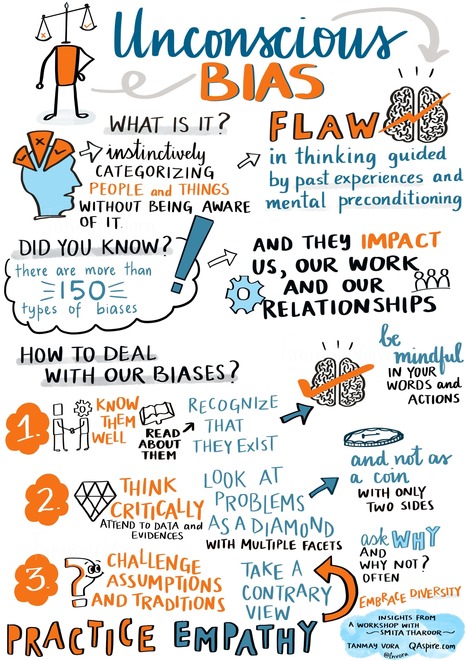
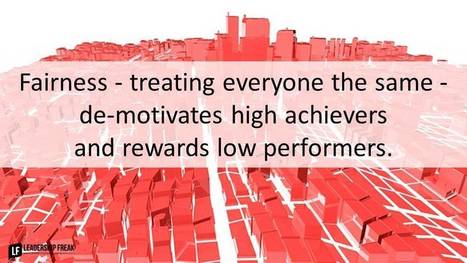

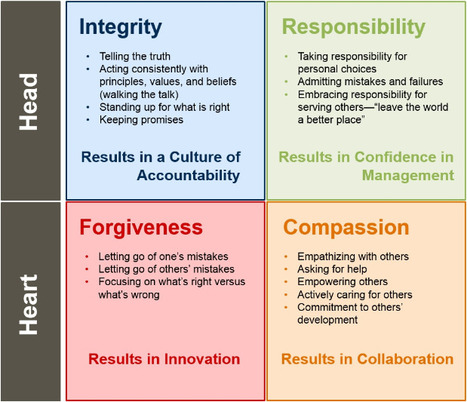


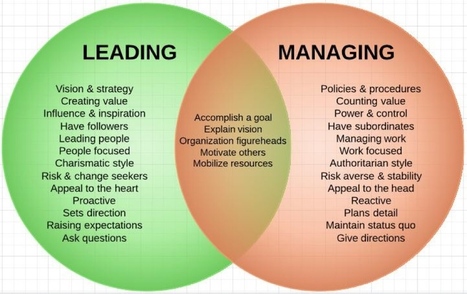
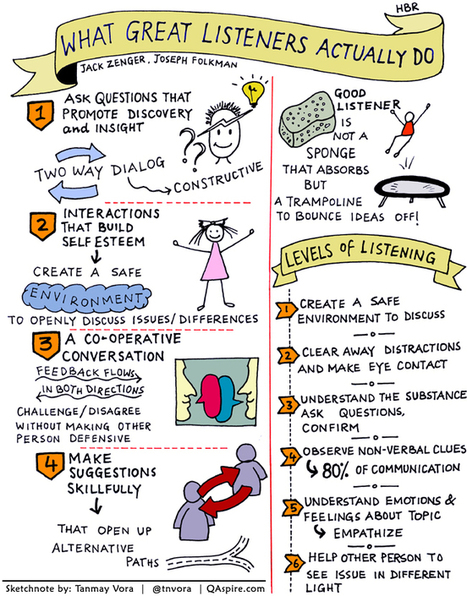



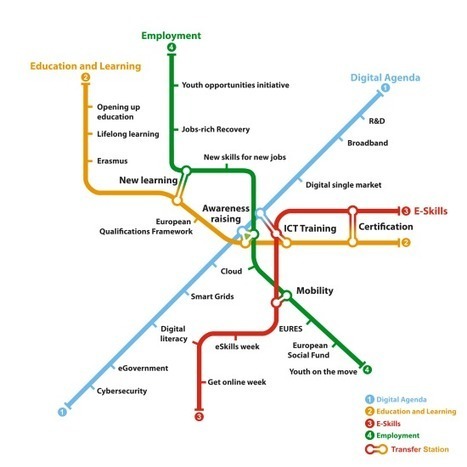
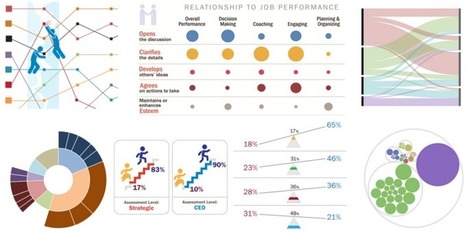






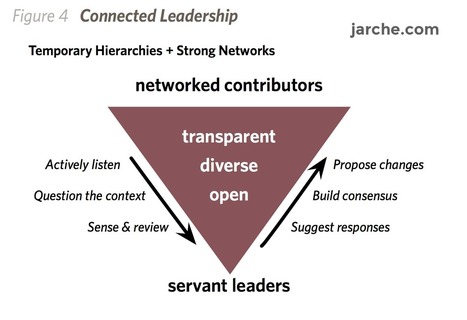




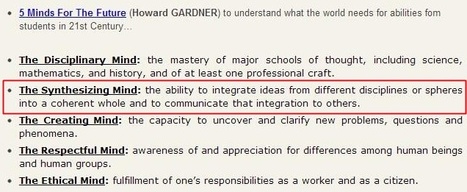




![Teacher leadership & deeper learning for all students [#Infographic] | #CTQ #CTQCollab | 21st Century Learning and Teaching | Scoop.it](https://img.scoop.it/3faSGv3dlsagJhsskEuNkDl72eJkfbmt4t8yenImKBVvK0kTmF0xjctABnaLJIm9)







Most executives we know have a powerful, intuitive feel for the rhythm of their businesses. They know how hard and fast to pull strategic levers, move their organization, and drive execution to achieve their objectives. Or at least they did. Digitization has intensified the rhythm of competition in many industries, leaving executives adrift, with information-gathering systems that are too slow or disconnected, direction-setting approaches that are too timid, and talent-management norms that are misaligned and incremental.
These leaders know their companies must adjust and accelerate. Digital is putting pressure on profit pools as it transfers an increasing share of value to consumers. Furthermore, those profit pools are bleeding across traditional industry lines as advanced technologies enable companies to forge into adjacencies, changing who in the value chain is making money, what share of the pie they capture, and how. The slow and inefficient are left behind, competing for scraps.
Learn more / En savoir plus / Mehr erfahren:
https://www.scoop.it/topic/21st-century-learning-and-teaching/?&tag=Digital+Skills
https://www.scoop.it/topic/21st-century-learning-and-teaching/?&tag=LeaderShip